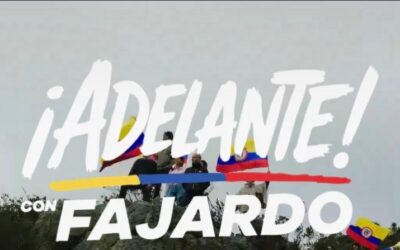By Colombian Senator Jorge Enrique Robledo
Bogotá, March 21, 2007.
The 1999 Plan Colombia has clearly failed in its publicly stated goal of reducing coca and opium poppy production by 50%. This reduction was calculated to increase street prices for heroin and cocaine in the United States, making access to these drugs more difficult. But not a single study points to an increase in prices and it’s obvious why not: the acreage of the so-called “illicit crops” has been maintained at levels sufficient to satisfy demand, and narco-trafficking networks have not been broken. Given the striking reality of this failure, it matters little whether the estimated area of coca cultivation is 80 thousand or 144 thousand hectares [1 hectare=2.5 acres], which are the figures given respectively by the United Nations Integrated System for Monitoring Illicit Crops and the U.S. State Department.
The drug business rests on a tripod of agricultural growers, narco-traffickers and drug-users, and the White House decision to focus the attack primarily on agricultural producers of the illicit crops while simultaneously imposing a Free Trade Treaty that will greatly damage agricultural production in Colombia generates an insoluble conflict within Plan Colombia itself. Producers will simply be forced into illicit crops if the cultivation of legal crops is severely or completely curtailed. Plan Colombia itself acknowledges that decreased agricultural protection against imports —which began in the 1990s at the onset of ‘free trade” in Colombia— has caused serious harm to agriculture: “In the last ten years Colombia has opened up its traditionally closed economy… the agricultural sector has been very negatively impacted, since the production of a number of grains such as wheat, corn, barley, and other basic products such a soy, cotton and sorghum have shown little competitiveness in international markets.” As a result, the text continues, “the increase of imports during the nineties has caused the loss of 700,000 hectares of cultivated land, dramatically impacting employment in rural areas.”
Although the agricultural losses mentioned in Plan Colombia could be restored if that were the goal, the FTA will make these losses irreversible, causing new damage to farmers, peasants, agricultural workers and indigenous communities. Plan Colombia and FTA proposals to specialize the country in tropical products will fail to compensate for these losses. Fifteen years of “free trade” have made earlier losses permanent or worse yet, they have grown overtime, while new tropical products for export have not materialized for two main reasons: one, the U. S. market for these types of products is saturated by imports from other countries; and two, the United States continues to utilize sanitary and phyto-sanitary measures to protect its own producers. In addition to this, whatever little agricultural support the Colombian government provides is funneled by current economic policies to large agricultural enterprises.
If the FTA is enacted, growing coca and poppies will be the only economically viable option for many decent peasants, indigenous communities and rural workers, all of whom will be faced with a choice: to abandon the cultivation of their traditional crops to enter an illegal life fraught with difficulties, or to move to urban slums to join the ranks of the undesirables. Historical experience shows that in rural cultures peasants try for understandable reasons to hold on to their lands, even in countries like Colombia where the government, following the directives of the White House, makes its presence felt only when it shows up to fumigate them like cockroaches. If the problem of drug use is essentially of a social nature, that is even more so the case with regards to the peasant growers of coca and poppy. Thus, they deserve positive support through measures other than the police methods which treat them as if they were narcotraffickers.
When we consider all of the above and the FTA as a whole, it helps to explain why George W. Bush had to make his recent trip through the continent nearly in hiding. This happened not because he’s regarded as a true representative of the people of the United States but rather because he must be endured as the spokesperson for the most regressive elements in that country.



